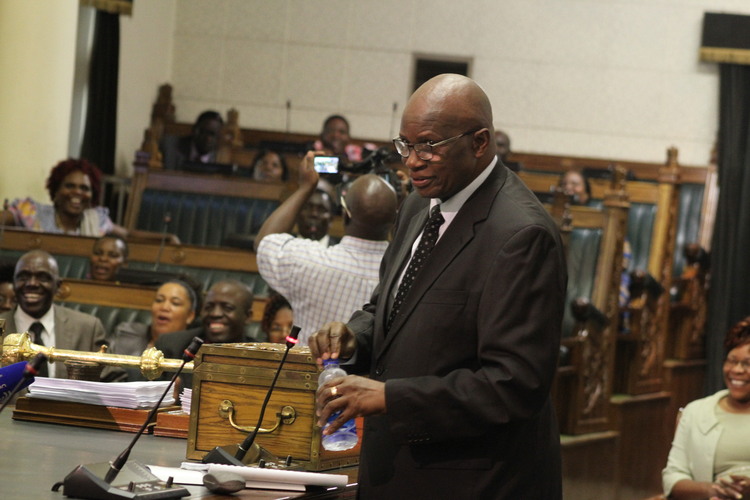
The Sunday Mail

In a market where the local industry has struggled to meet current demand, Government clearly has to spare a thought for the consumers.
MR Patrick Chinamasa last week did what any sensible Finance Minister would do: tighten the screws on ostensibly non-essential consumptive goods and provide succour for the struggling productive sector.
This might be the tonic to channelling huge cash resources that were hitherto being funnelled to overseas markets, particularly South Africa — which has evolved as Zimbabwe’s huge cash till — to local industries that are now clearly on the precipice.
But many fear that by shutting out foreign goods, which the Reserve Bank of Zimbabwe (RBZ) indicated in the August 25 Monetary Policy Statement (MPS) were relatively cheaper, Government might be throwing the consumer to the hyenas.
Local businesses have, since the hyper-inflation era, nurtured a reputation for being predatory.
But it must be agreed that the current situation is untenable.
The appetite of the local consumer, especially for foreign goods, clearly needs to be tamed.
Statistics from the Mid-term Fiscal Policy Review indicate that in the six-month period to June 2014, locals had imported motor vehicles worth more than US$167 million, an estimated 10 percent of the import.
On the overall, last year’s motor vehicle imports topped US$484 million.
It also has become normal, fashionable even, to import miscellaneous fruit and vegetable products.
It is, therefore, unsurprising why the trade deficit continues to grow unsustainably high.
It was predictable that there had to come a time when authorities were expected to address such an aberration.
So, Minister Chinamasa had to bite the bullet, and he did.
In some jurisdictions, it is paramount for policymakers to promote consumption, but in Zimbabwe promoting consumption within the framework of the current economic architecture only serves to promote industries and jobs elsewhere.
Reconfiguring the system, as Treasury has done, to promote consumption of local goods is therefore heartening.
As part of broad revenue measures announced by Government last week, customs duty on mobile handsets will rise 25 percent, as the duty-free dispensation, adopted on August 1 2009, has, according to Government, achieved its intended result.
There are now more than 13,9 million active mobile phone lines, translating to a mobile internet penetration rate of more than 106,4 percent.
It must be noted that for the five-year period the dispensation subsisted, it worked miracles for the low end of the mobile phone market.
Prices for high-end productions, even basic smart phones, were extortionate.
While the recently released iPhone 6 from Apple is expected to retail at US$199 in the United States, old generations of the iPhone are quoted ridiculous prices on the local market.
Smartphone penetration has, as a result, remained relatively low.
It is natural to speculate that the new duty structure will result in a lot of discomfort for aspiring smart phone buyers.
Perhaps much of the effect of the interventions made will be felt through the new duty structure and tariffs that has been slapped on a wide range of goods such as meat, milk and cream, yoghurt, butter, cheese, fruit and vegetables, potatoes, pasta, cement, petroleum jelly, perfumes and toilet waters, and polishes and cream.
In a market where the local industry has struggled to meet current demand, Government clearly has to spare a thought for the consumers.
They have to be guided against being exposed to the inefficiencies in local industry.
The August MPS review on page 82 clearly outlines how the country’s goods are expensive relative to those in the region.
Government’s legislative arm, therefore, ensures that the Consumer Protection Bill and the Zimbabwe Quality Standards Regulatory Authority Bill, which seek to protect the rights of consumers and to foster fair trade, are given the attention they deserve.
Encouragingly, President Mugabe singled out the two crucial pieces of legislation in his outline of the legislative agenda for the Eighth Parliament of Zimbabwe in September last year.
So, in its noble endeavour Government has to ensure that the ordinary consumers are protected as the temptation by local industries that have received a new lease of life to use them as a “line of credit” is high.
—
Earlier this week articles, READ The highlights and get full FISCAL POLICY REVIEW document to download




